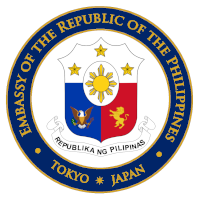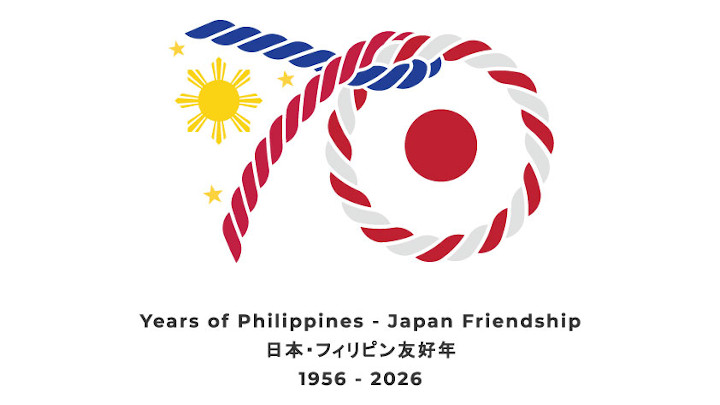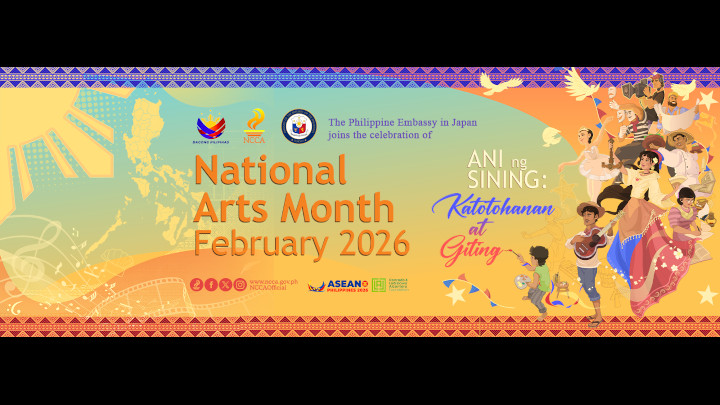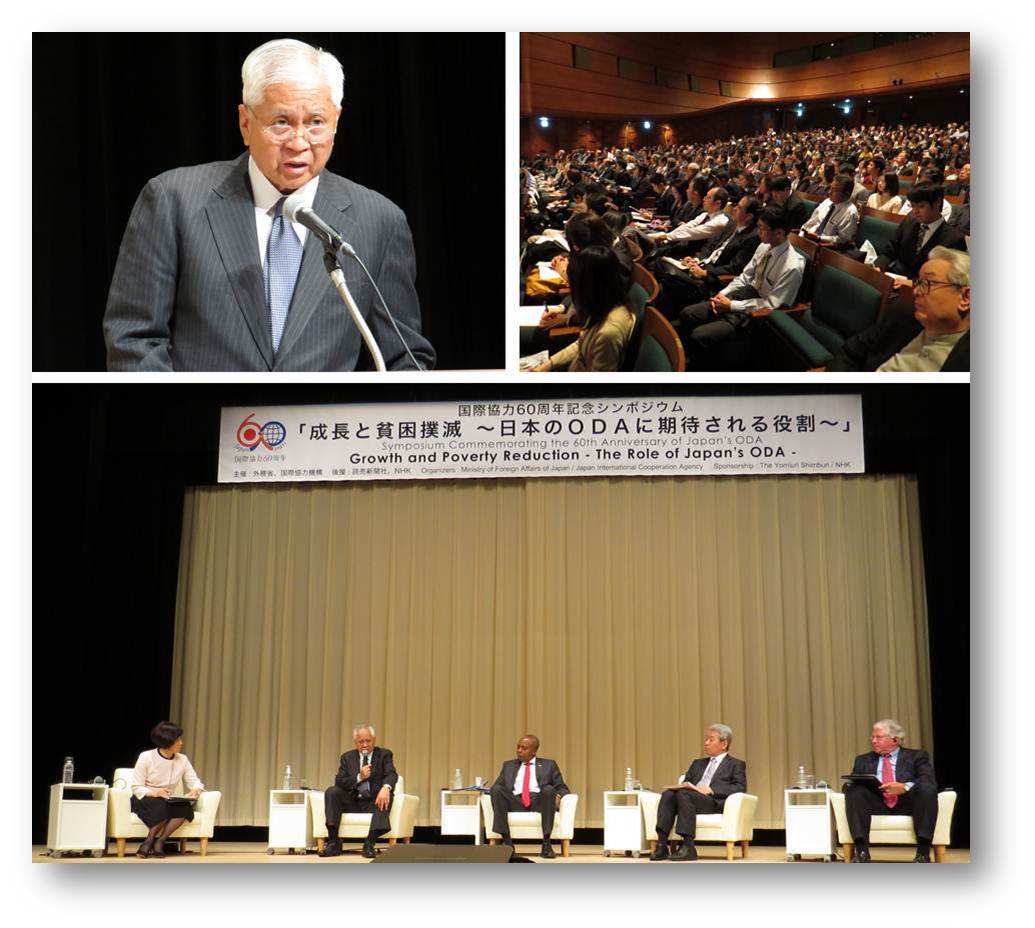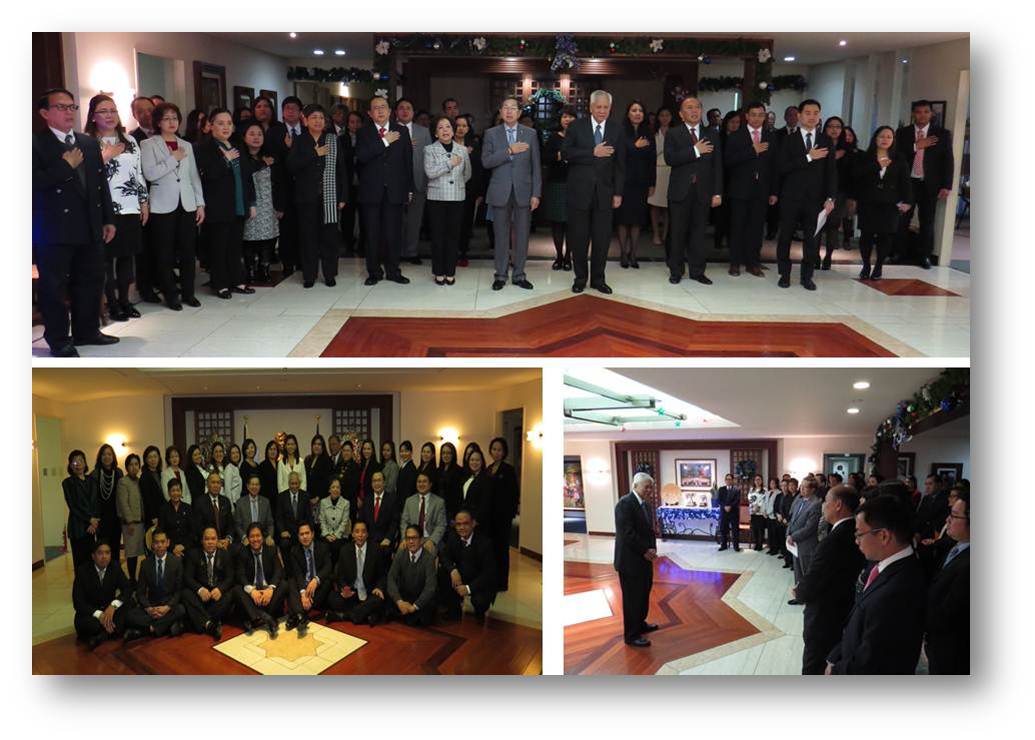Secretary Del Rosario Lauds Japan’s 60 Years of Development Assistance, Pushes for Future Development Cooperation Agenda on Governance, Peace-Building, and Disaster Resilience for the Philippines
18 November 2014 – Foreign Affairs Secretary Albert F. del Rosario said on November 17 that the Philippines and Japan, as strategic partners and close friends, “should continue to pursue an inclusive growth agenda that effectively put our peoples at the center of development.”
Speaking at a Symposium commemorating the 60th anniversary of Japan’s Official Development Assistance (ODA) programs in Tokyo, Secretary Del Rosario thanked Japan for six decades of steadfast support and contribution to the Philippines’ development efforts, as a “genuine development partner” of the Philippines.
The Secretary called for a re-focus of Japanese ODA on strengthening institutions and governance and building disaster resilient communities. For Japan’s ODA program to effectively craft a people-centered development response to emerging global challenges, grant programs should concentrate on innovation, science and technology, and human capital development to increase the skills, knowledge, and productivity of Filipinos. For the next 60 years, he urged Japan to continue its adherence towards “self-help” and “country ownership” and to keep up its efforts in fighting poverty, even in middle-income countries.
For countries such as the Philippines, Secretary Del Rosario stressed that ODA can be used to upgrade and modernize public institutions and the entire civil service through institutional capacity-building so as to make them attuned to 21st century governance. “Indeed, the program benefits become substantial when strong institutions exist to implement ODA projects. We therefore welcome more innovative program partnerships with the Japanese Government that will ensure the irreversibility of our reform agenda,” the Secretary remarked during the Symposium attended by over 500 participants at the Lino Hall in Tokyo.
Secretary Del Rosario invited Japan to invest in innovation and human capital development because this strategy becomes an imperative as the Philippines enters its so-called demographic sweet spot in 2015, when majority of its population, with a median age of 22 years, enters the workforce. In this connection, he said that more grant programs that focus on Science and Technology education must be promoted.
On peacebuilding, particularly in Mindanao, Secretary Del Rosario said the Japan-Bangsamoro Initiative for Reconstruction and Development (J-BIRD) advanced the Mindanao peace process by directly addressing poverty challenges and development gaps in Southern Philippines. “To ensure that we continue to generate peace dividends, we welcome Japan’s recent initiatives under the Comprehensive Capacity Development Project for the Bangsamoro,” he added.
At the panel discussion following his remarks, the Secretary pointed out that Japan has greatly contributed to peace and development and thus for the next decades the ODA “should concentrate on training new, young, and morally upright leaders for peace-building and development, particularly in Mindanao under the proposed Bangsamoro Political Entity.” He added that given the challenge of mega disasters as the new normal, the need to have a disaster resilient country must be acknowledged and “to this end, there is therefore the need to embed disaster resilient financing as an element in ODA.”
Japan celebrates this year the 60th anniversary of its ODA initiated by its accession to the Colombo Plan in 1954. Under the theme; “Growth and Poverty Reduction: The Role of Japan’s ODA,” the Symposium provided the opportunities to look back 60 years of Japan’s cooperation and examine its fruits and values, as well as to discuss the role of Japan’s international cooperation in the new era.
Japan is the Philippines’ foremost bilateral development partner. As of June 2014, Japan has provided US$3.63 billion worth of ODA representing the largest share (28.6 percent) of the Philippines’ total ODA portfolio. Japanese ODA has directly contributed to Philippines’ development efforts across a wide range of priority areas, including irrigation, flood control, education, health care, earthquake detection, rural road network construction and improvement, water supply, and livelihood programs. In the aftermath of Super Typhoon Yolanda, Japan was among the first to provide emergency assistance to the Philippines, continues to play a major role in the reconstruction effort through the Yolanda Comprehensive Rehabilitation and Recovery Plan.
Secretary Del Rosario visited Tokyo from November 16 to 17 as guest of the Japanese Government for the 60th anniversary celebration of Japan’s ODA. He spoke on the subject “History of Development and Challenges of the Philippines: How Did Japan’s ODA Affect the Growth of the Philippines?” The other invited speakers were Dr. Akihiko Tanaka, President of the Japan International Cooperation Agency (JICA); Mr. Michael Kamau, Cabinet Secretary of Ministry of Transport and Infrastructure of the Republic of Kenya, and Dr. John Page, Senior Fellow, Global Economy and Development, the Brookings Institution.
Before attending the symposium the Secretary joined Philippine Ambassador to Japan and Madame Manuel M. Lopez and the entire Embassy personnel for the Monday flag-raising ceremony and informal meeting.
Link:
The Secretary’s remarks
